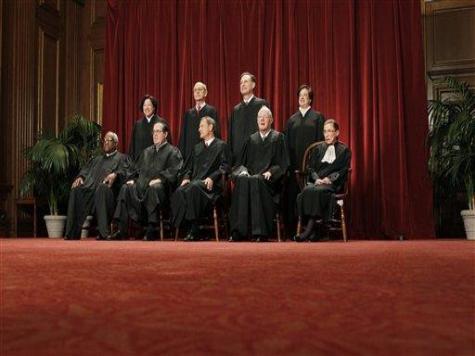The Supreme Court appears to reject the argument that it lacks jurisdiction to decide Obamacare’s fate until 2015. We should all expect the red-hot issues surrounding Obamacare to be decided by the end of June, for better or worse. And the Obama administration is trying to have its cake and eat it, too.
It’s well known that many are challenging the legitimacy of Obamacare’s individual mandate. Fewer know that there is a second issue of whether Obamacare’s expansion of Medicaid is unconstitutional, and whether striking down either provision also requires striking down the entire 2,700-page law (called severability).
But before the Court can reach any of those issues, it must confirm that it has jurisdiction to decide this case. Jurisdiction is literally the ability to “speak law”–it is whether a court has the Constitution’s authorization to determine the issues before it, including the power to strike down a law that is unconstitutional.
Among other things, the Anti-Injunction Act (AIA) provides that, “no suit for the purpose of restraining the assessment or collection of any tax may be maintained in any court by any person.” Under the AIA, a person who thinks a tax is illegal must first pay the tax, then demand a refund from the IRS. If that refund is not forthcoming within six months, then the taxpayer may sue in federal court.
If the individual mandate is a tax–or if the penalty you pay on the annual tax return for failing to obey the mandate is a tax–then does the AIA deny federal courts jurisdiction to decide Obamacare at this time? The individual mandate goes into effect in 2014. Those who fail to comply must pay a fine on their tax returns filed in 2015. If the AIA applies, then all the current cases must be dismissed, and we’ll have to start all over in three years.
But the AIA argument fails for three reasons. First, the AIA is not a jurisdictional statute. It simply establishes that tax claims must go through a certain process with the treasury secretary. It says nothing to deprive federal courts of power. As Justice Antonin Scalia said, “All the other directives there seem to me to be addressed to the Secretary. Why should this one be directed to the courts?” Jurisdiction-stripping statutes are narrowly construed, and so must clearly state it wishes to limit judicial power.
Also, in at least four cases, the Court has granted a waiver to the AIA. Every lawyer knows that there’s no such thing of a waiver on the limits of a court’s power. Jurisdictional issues cannot be waived or forfeited.
It wasn’t just conservatives, either. Justice Stephen Breyer said he was leaning toward finding jurisdiction here, and Justice Elena Kagan said prior cases are not consistent with thinking the AIA stripped jurisdiction from the courts.
Even if the AIA were jurisdictional, it only says that, pre-payment, suits cannot be brought “by any person.” It’s a basic legal rule that “person” includes private actors like partnerships and corporations, but that it does not include states unless the statute specifically says so.
States are sovereign, on the level of the federal government. So even if the AIA does not apply, it would not stop the twenty-six plaintiff states in this case.
And third, even if the AIA were jurisdictional and did apply to the states, it still wouldn’t stop this case. Because the challengers are not challenging the penalty that people defying the mandate must pay on their annual tax return. Even though that’s not a tax (it is instead a penalty), it’s the only thing related to the mandate you could call a tax.
But instead of the penalty, the plaintiffs are challenging the individual mandate. It’s a command that they give their money to a private insurance company, not to the government. So it’s not a tax.
Any way you cut it, the AIA should not get in the way here. Although it provides a weak argument to duck this issue and punt it until after the election, that doesn’t appear to be the case.
The challengers’ arguments were presented by Greg Katsas, who got it exactly right. The Obama administration was represented by Solicitor General Don Verrilli, who argued that the AIA was jurisdictional, but does not stop this case. The Court appointed an amicus–Robert Long–to take the side that the AIA does not allow jurisdiction here. He failed to do so.
And so we move on the big issues in the Obamacare case, beginning with the second day of argument.
Justice Samuel Alito noted to President Obama’s lawyer, “today you are arguing that the penalty is not a tax. Tomorrow you are going to be back [to defend the individual mandate] and you will be arguing that the penalty is a tax.”
Thus we see the irony of this president’s public positions.
Legal contributor Ken Klukowski is senior fellow with the Family Research Council and on faculty at Liberty University School of Law.

COMMENTS
Please let us know if you're having issues with commenting.